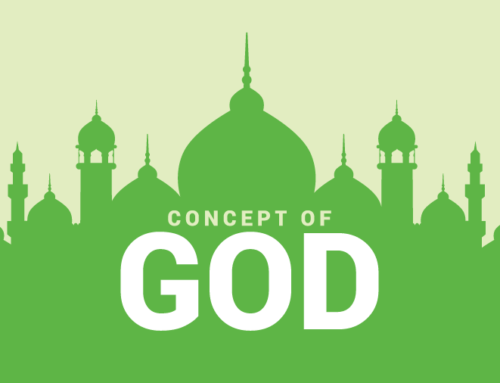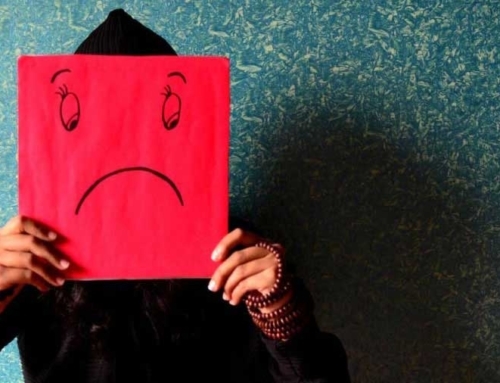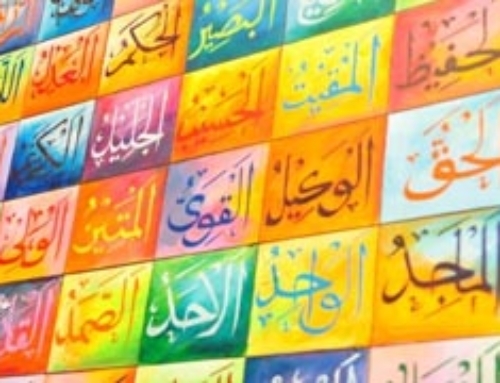By: Saima Mehboob
The Meaning of Chaos in Islam and How to Cope With It
Why is there so much suffering in this world? Someone very close to me lost his only child recently. He buried his 24-year-old son, three years after losing his wife. A small family of three, now a heart-broken man of one. The loss of his son was sudden, and shook the extended family to its core. The grief is so heavy, its presence in the air they breathe, hugging their hearts tight. My son, hurt & confused, turned to me and asked the same question that has been asked before.
“If God is kind & merciful, how could He let this happen?”
How does Islam Answer the Question of Suffering?
When we look around us and see the pain & loss of our fellow humans, it’s hard not to think: life does not seem fair. Experiencing the pandemic over the past year and a half has been a humbling experience. For all of our technological and scientific breakthroughs, we were rendered helpless as we saw many loved ones slip through our hands. Our lives changed forever against the backdrop of on-going human suffering that never eased off through political unrest, famine, and natural disasters that continued to come our way. Some look around at the pain & loss and ask the question that has plagued us since the beginning of suffering itself: is there even a God? If so, how can a God exist that allows this?
Islam’s Perspective on Suffering: Why does God Allow It?
Muslims believe that the pain & suffering we experience in this world is not punishment. Islam is the act of accepting God’s will and being at peace with it and acknowledging that we can’t always understand the wisdom behind His plan. A Muslim believes God is his Master. That relationship implies a humbleness towards his Creator because everything ultimately belongs to Him and inevitably returns to Him. Even in our hardest moments, as that father throws the last handful of dirt on his beautiful boy before he walks away from his son’s final resting place, God is ever merciful and loving.
The Quran’s Message of Hope for Those Who are Suffering
In the moments when we suffer from pain and loss, Muslims can find comfort in the Quran, which they believe is God’s final revelation to the Prophet Muhammad (peace be upon him). Because of His infinite wisdom and mercy, our Creator tells us very early on in the Quran about loss. In fact, He not only guarantees its inevitability, but also arms us with the response that we will benefit from the most.
“And certainly, We shall test you with something of fear, hunger, loss of wealth, lives and crops, but give glad tidings to the patient. Who, when afflicted with calamity, say: “Truly! To God we belong and truly, to Him we shall return. Such are they on whom are blessings from their Lord, and mercy. Such are the rightly guided.” (Quran 2:155-157)
The Prophet Muhammad’s (peace be upon him) life is full of examples of loss and suffering. God’s reminder to him, and as an extension, to all of us, is that He has not abandoned him and was always there for him, even when it seemed like no one was.
“Your Lord has neither forsaken you nor hates you. And indeed the Hereafter is better for you than the present (life of this world). And verily, your Lord will give you (all good) so that you shall be well-pleased. Did He not find you an orphan and protected you?” (Quran 93:3-6)
The Islamic Perspective on Justice and The Afterlife
Our purpose in life goes beyond achieving success as defined by society and nurturing the relationships created through blood and bonds. A recurring theme of Chapter 18 of the Quran, one that Muslims are encouraged to read every Friday, is the focus humans have on the worldly life, losing sight that the appointed time when we will meet our Creator is near. The suffering & injustices that occur in this world can only make sense if there is justice served in the next, where Muslims believe every human that has ever lived will be called to account for his actions and either be punished for his wrong-doing or rewarded for his good deeds. One of these good deeds is patience in the face of suffering.
“Wealth and children are an ornament of the life of the world. But the good deeds which endure are better in thy Lord’s sight for reward, and better in respect of hope.” (Quran 18:46)
How to Find Meaning in Suffering According to Islam
There isn’t always a clear answer for why one suffers, but comfort comes from making peace in our hearts and minds with God’s plan and that it is ultimately good for us. Things may not make sense in the immediate, but in the long run God always does everything for a reason that if full of wisdom. Why else would a beautiful young boy be thrown in a well by his jealous brothers, kidnapped, sold into slavery, and raised in a prestigious home in Egypt only to be imprisoned after false accusations? This is the story God tells us about in the Quran, of the Prophet Joseph (peace be upon him) who later became a minister to the King of Egypt. His leadership & foresight helped Egypt avoid a famine that would have changed the very course of history we know today, where the great Egyptian civilization, Moses and the Exodus would not have existed.
Having Faith When Facing Unequivocal Loss
The heart of a parent grieving the loss of their child can not mend with words of condolences. Accepting this to be God’s will does not diminish the heartache, nor should we equate tears of sorrow with a lack of patience and gratitude. The Prophet Muhammad (peace be upon him) cried after his young son, Ibrahim died and in fact all of his children died before him except one. When he was asked about his tears, he replied that it was God’s mercy and love that gave him the ability to feel this sadness to begin with. While in this place of sheer heartache and vulnerability, the Prophet Muhammad (peace be upon him) still used this as a teaching moment for all Muslims, saying “The eyes are shedding tears and the heart is grieved, and we will not say except what pleases our Lord. And we are grieved, Oh Ibrahim, by your departure” (Sahih al-Bukhari 1303).
Therefore, I can only answer my son by sharing what Islam teaches us about God’s love for us, that we belong to Him, and to Him we will return. Want to learn more? Call 877-WhyIslam.
Dedicated to Muhammad Saad Hassan, 12/18/1996 – 8/19/2021. May you rest in peace.
Saima Mehboob is a Muslim woman, born in Pakistan and raised in the US. She currently resides in NJ, is a full-time corporate professional and a WhyIslam volunteer.
Got Questions?
We have Answers. Get in touch now.








